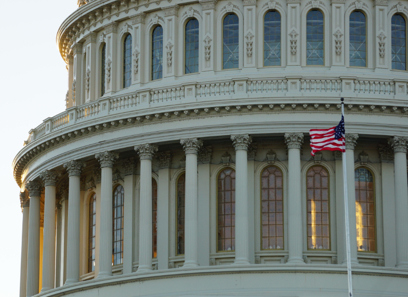The Impact of Mergers and Acquisitions on Market Characteristics and Competition
The landscape of mergers and acquisitions offers an intricate interaction in between cultivating development and possibly threatening affordable honesty within markets. As firms seek critical placements to enhance efficiency and development, the implications on consumer choice and market prices warrant careful scrutiny.
Overview of Mergers and Acquisitions
Mergers and acquisitions (M&A) play a pivotal duty in shaping the landscape of modern-day organization, as firms seek to improve their affordable edge and attain strategic purposes. M&A purchases entail the combination of business or assets via numerous monetary transactions, consisting of mergers, where 2 firms combine to create a new entity, and acquisitions, where one firm purchases another outright. These tasks are driven by a myriad of elements, such as the pursuit of harmonies, diversification of product offerings, and the wish to enter brand-new markets.
The M&A process usually involves numerous stages, consisting of calculated planning, due persistance, negotiation, and assimilation (Emerging Market Opportunities). Business perform complete analyses to recognize potential targets that straighten with their growth approaches and evaluate the functional and financial ramifications of a transaction. Regulative considerations likewise play an essential function, as antitrust laws are created to avoid monopolistic methods that can harm competitors
As organizations navigate the intricacies of M&A, the outcomes can substantially influence stakeholders, including shareholders, workers, and consumers. Recognizing the characteristics of M&A is important for examining their ramifications within the more comprehensive context of market actions and affordable placing.
Positive Effects on Market Dynamics
The debt consolidation of firms via mergings and procurements can lead to considerable positive effects on market dynamics. This efficiency can translate right into reduced prices for consumers, cultivating an extra competitive market atmosphere.

In addition, raised market share arising from mergings can supply firms with higher bargaining power with distributors and suppliers, facilitating boosted conditions that can profit the general supply chain.
Negative Consequences for Competitors

Additionally, the elimination of rivals via procurements can suppress technology. When vital gamers combine, smaller sized companies may struggle to compete, resulting in a homogenization of solutions and items. The resultant absence of competition can create an environment where remaining firms have much less reward to purchase research study and development.
Furthermore, mergings can develop barriers to entry for brand-new companies, as the merged entity may utilize its boosted sources to dominate the marketplace. This can hinder prospective entrants, thereby restricting competitors and development in the long-term.
Inevitably, while mergings and acquisitions can provide strategic benefits, their prospective to undermine competitors requires careful factor to consider of their broader effects on the marketplace dynamics. The equilibrium between development and competitive honesty stays a crucial problem in examining such corporate approaches.
Regulative Factors To Consider and Oversight
Regulative structures play a vital role fit the landscape of mergers and procurements, guaranteeing that market characteristics remain competitive and reasonable. These frameworks are created to avoid anti-competitive habits and to protect consumer passions. Regulatory bodies, such as the additional info Federal Profession Commission (FTC) in the USA and the European Compensation in the EU, examine proposed mergers and procurements based on their potential effect on competitors within the marketplace.
The evaluation process involves a detailed investigation of the market share, potential for monopolistic techniques, and the total economic effects of the purchase. Regulatory authorities usually enforce conditions or call for divestitures to alleviate worries over decreased competition, guaranteeing that the merged entity does not dominate the marketplace unjustly.
This joint Visit Your URL technique assists to foster a balanced governing setting that promotes development while safeguarding affordable techniques. Eventually, effective regulatory factors to consider are necessary in preserving market integrity and motivating healthy competition in the face of advancing service landscapes.
Situation Studies and Real-World Instances
Often, study of significant mergers and procurements show the extensive impacts these transactions can carry market dynamics. The 2000 merging between AOL and Time Warner offers as a prime example, where the prepared for synergies failed, causing a drastic decrease in shareholder worth. This case emphasizes exactly how social misalignments and overestimation of market possibility can interrupt competitors.
In comparison, the procurement of WhatsApp by Facebook in 2014 exemplifies an effective combination that improved the communication landscape. Emerging Market Opportunities. Facebook leveraged WhatsApp's customer base to enhance its service offerings, properly enhancing its market prominence while maintaining competitors in the messaging sector
One more substantial case is the merging of Exxon and Mobil in 1999, click to read more which created one of the globe's biggest oil business. This consolidation caused greater effectiveness however elevated concerns regarding minimized competitors in the energy market, triggering regulative analysis.
These instances highlight the intricate interaction in between procurements and mergings and market characteristics, showcasing both the possible advantages and challenges that can emerge, ultimately forming affordable landscapes throughout sectors.
Verdict
Mergers and acquisitions play a crucial function in shaping market characteristics and competition. Reliable governing oversight is crucial to make sure that the benefits of M&A tasks are optimized while reducing adverse effects on market competition.
One significant concern is the possibility for decreased market competitors, as mergers usually lead to the debt consolidation of market power among less players. Regulative bodies, such as the Federal Trade Compensation (FTC) in the United States and the European Payment in the EU, assess recommended mergers and procurements based on their potential effect on competitors within the market.

Mergers and purchases play a critical role in forming market dynamics and competition. Reliable regulative oversight is important to ensure that the advantages of M&An activities are made the most of while minimizing unfavorable impacts on market competitors.